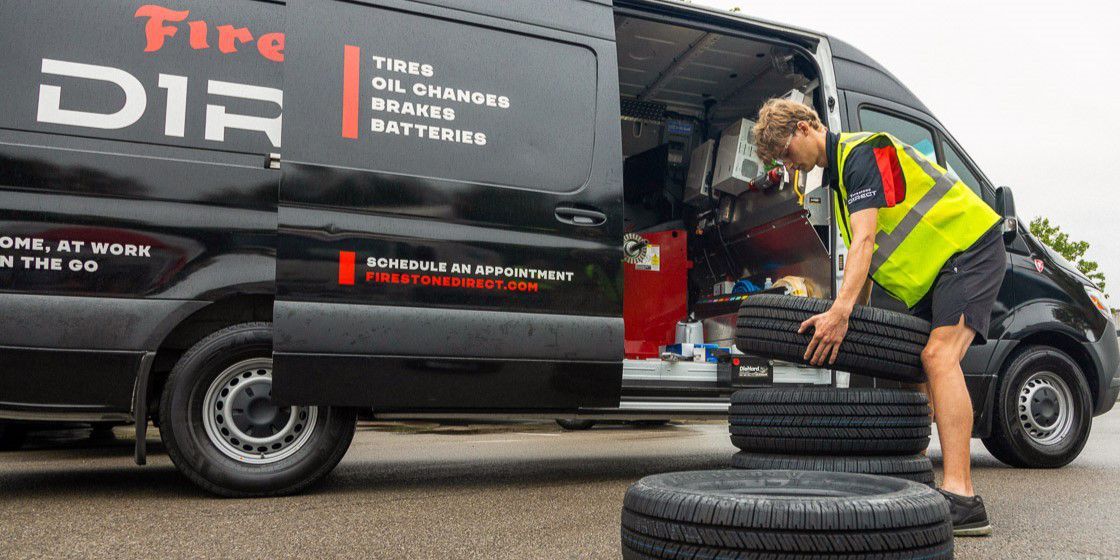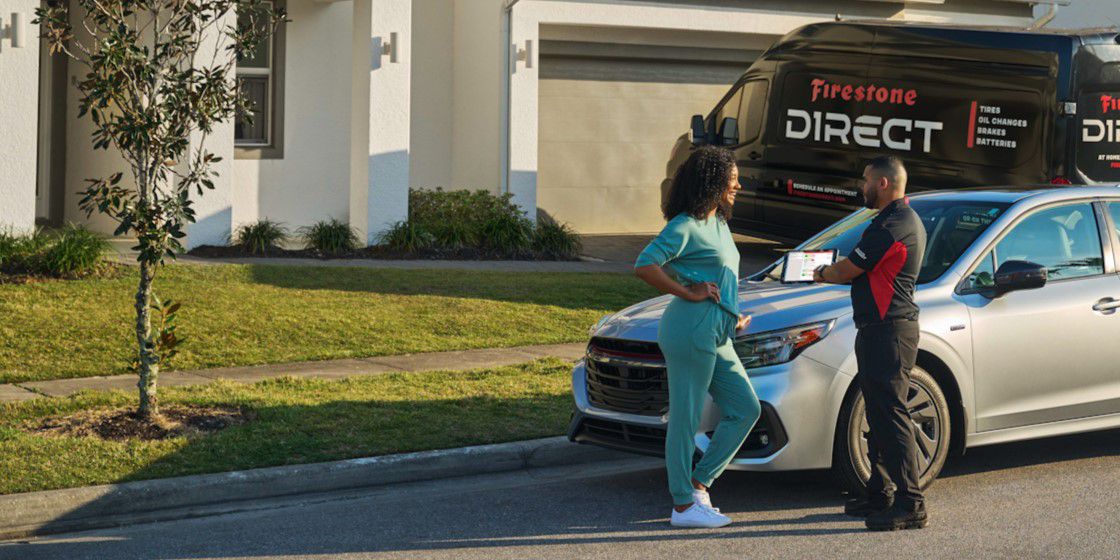Tire maintenance
Proper tire tread depth and tire inflation are two key factors in optimal performance and handling for your vehicle. It’s normal for the tread to wear down over time, but ideally, it’s both gradual and spread out evenly across all four tires. How often you drive and the typical road conditions can impact tire tread wear, but generally, experts recommend getting new tires after 6 years. The penny test is one easy way to check your tread depth at home. Place a penny head-first into several tread grooves across the tire. If you can see the top of Lincoln’s head, your treads are worn enough to require a replacement as soon as possible.
Proper tire inflation can ensure even weight distribution, reduce rolling resistance, promote fuel efficiency, and help your tires last longer. From an obvious flat tire to a slow leak or the natural loss of pressure over time, there are many causes of tire pressure loss. Make sure you know the right tire pressure for your vehicle—it can be found on a sticker placed either on the vehicle's door jamb or in the glove box. Get into the habit of checking tire pressure once a month using a digital tire gauge for accuracy.
Signs to watch out for: Uneven tread wear can indicate you need an alignment or that it’s almost time for new tires. In newer cars, the TPMS light on your dashboard will alert you if your tire pressure has dropped. When you purchase new tires through Firestone Direct, we can deliver and install them in a single appointment. Learn more about our new tires service appointments.
Oil and coolant changes
Motor oil keeps your engine functioning with minimal friction. Over time, the oil becomes contaminated with dirt and debris and needs to be replaced. Generally, modern vehicles that use synthetic oil can go 5,000 miles or one year, whichever comes first, before an oil change. Check your manufacturer’s guidelines for the recommended oil change intervals for your specific vehicle.
Coolant is another important fluid to keep your engine from overheating. Best practice is having your coolant levels checked and topped up every time you get an oil change.
Signs to watch out for: If you notice a burning smell or hear unusual sounds coming from the engine, have it checked out immediately. If you’re past due for an oil or coolant change, it may seriously damage your engine. Don’t ignore the Check Engine light on your dashboard, either. If it’s illuminated, it could mean a number of things, including that it’s time for an oil change.
Battery checks
The main purpose of a car battery is to provide the power your car needs to start. In general, a battery lasts between three and five years but may vary based on your driving habits and the climate. To avoid draining the battery prematurely, make sure the radio, interior light and headlights are off when the engine isn’t running.
Signs to watch out for: If the car is slow to start or takes multiple tries, or the battery light on your dashboard is illuminated, have a professional do a battery check. If they find a misshapen battery case or a fluid leak, they’ll likely recommend a replacement. Firestone Direct mobile technicians can check your battery and provide guidance for next steps.
Brake pads and brake fluid
Most cars have disc brakes which are made up of ceramic pads that press against metal discs to stop the car. Naturally, these pads will wear down over time and become less effective. The general recommendation is to have your brake pads checked every 5 months or 5,000 miles.
The role of brake fluid is to increase the force that moves through the brake lines to the calipers that activate the brake pads. Without enough brake fluid, the process won’t be as efficient and smooth as it should be.
Signs to watch out for: Squeaking or squealing sounds when you apply the brakes, a spongy feeling in the pedal, or a shaky steering wheel can all be indications that your brakes need to be checked immediately. If brake fluid is low, the brake warning light on your dashboard will come on.
Wiper blades and windshield washer fluid
It goes without saying that you need to see where you’re going when you’re driving. While you won’t need your wiper blades every time you get behind the wheel, you never know when inclement weather or unexpected debris might obscure your view of the road. That’s when you’ll rely on your windshield wipers being in good condition. Consider replacing the wiper blades every six to twelve months, depending on local driving conditions, wear and tear, and how much you drive.
Windshield washer fluid comes in handy when your wipers need a little extra help clearing the windshield of ice, snow, and other debris like mud and bugs. You don’t want to be without fluid when you need it, so check the reservoir under the hood every couple of months and top it up when needed.
Signs to watch out for: If your wipers are leaving streaks or not making even contact with the windshield, they’re due for replacement. If fluid isn’t coming out easily, it could be clogged or need to be refilled. Book a convenient mobile appointment with
Firestone Direct, and one of our technicians can come to you and replace your wiper blades in no time.

